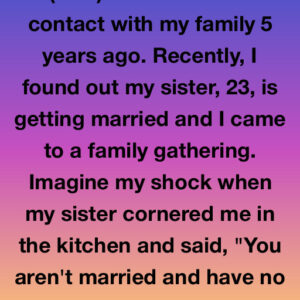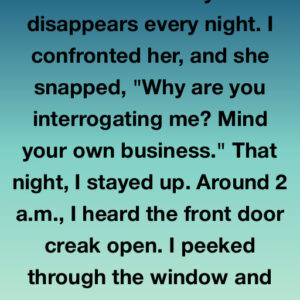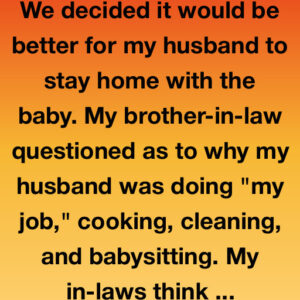My dad burst into the office, out of breath, asking, “What happened to my daughter? Is she okay?”
The principal cleared her throat and said, “We called you because her skirt is too short.”
My dad turned to me, his eyes scanning my outfit.
He paused, then turned back to the principal and said, “What about the boys wearing shorts above their knees? Or the girls on the cheer team during pep rallies? Or the crop tops I see every day in this school parking lot?”
The room went silent.
Even I held my breath. I’d never seen my dad like that—calm, steady, but sharp. Like a pot of water just starting to boil.
Principal Henley shifted uncomfortably in her seat. “We’re simply enforcing dress code policy.”
“And is the policy written in a way that applies evenly to every student?” he asked, folding his arms. “Because it feels a whole lot like you’re singling out my daughter.”
I sat there frozen, still trying to figure out what hurt more—being pulled out of class in front of everyone, or the humiliation of sitting here like a criminal because my knees were showing.
What made it worse? It was Spirit Week. “Retro Day.” I was wearing my mom’s old 90s plaid skirt and a tucked-in tee. Nothing outrageous. But somehow, I was “inappropriate.”
My dad turned to me. “You okay, Reina?”
I nodded, barely. My throat was dry, and my face was hot.
He looked back at the principal. “We’ll be going now.”
“Mr. Salcedo, this isn’t something we can just ignore—”
“No,” he said firmly. “But maybe it’s something you should rethink.”
We left the office, and I swear I could hear my heart thudding louder than our footsteps.
On the way home, he didn’t say much at first. We just drove in silence. I could tell he was still stewing. Finally, at a red light, he said, “You did nothing wrong, Reina. They embarrassed you, and they were wrong for it.”
I blinked hard, trying not to cry.
“I wore that same skirt last week,” I whispered. “But no one said anything then.”
“They only notice when they want to,” he said. “That’s the problem.”
What happened next surprised me. My dad made a post about it on his old Facebook account. He rarely uses social media, but this time, he wrote:
“Today, my daughter was pulled out of class because her skirt was ‘too short.’ She wasn’t disrupting anyone. She wasn’t breaking a rule that’s consistently enforced. She was learning. Until the school decided her knees were more important than her education. Dress codes shouldn’t humiliate students or shame girls into thinking their bodies are distractions. Do better, schools. My daughter deserves better.”
I rolled my eyes when I saw it at first—mostly because I didn’t want the attention.
But within two days, the post had over 12,000 shares.
Some people were nasty in the comments, sure, but most were supportive. Parents, students, even teachers chimed in. Some shared similar stories. Some said they’d never realized how unfair the rules felt until now.
A week later, we got a call. A school board meeting was scheduled, and we were invited.
I didn’t want to go at first. I didn’t want to be that girl. The one who caused a stir over a skirt.
But my dad looked at me and said, “You already are that girl. The question is—do you want to let that label define you, or do you want to redefine it?”
So I went. And I spoke.
I told them how I felt in that office. How ashamed I was, even though I didn’t do anything wrong. How rules that aren’t evenly enforced teach the wrong lessons.
I didn’t yell. I didn’t cry. I just told the truth.
And it worked.
They didn’t throw out the dress code completely—but they did revise it. They rewrote it to be gender-neutral, less subjective, and more focused on actual disruptions rather than outdated modesty standards.
More importantly, they apologized—to me, and to other students who’d been treated unfairly.
The weirdest thing? I became kind of… proud. Of what we did. Not because I went viral, or because something changed. But because I realized I wasn’t the problem—and never had been.
Sometimes, you just need someone—like my dad—to stand up for you so you can learn how to stand up for yourself.
I wear that skirt again sometimes. Not in rebellion. Just because it’s cute, and I like it. And that should be enough.
Lesson? Don’t let anyone make you feel small for showing up as yourself. And if someone tries, speak up—even if your voice shakes. Especially then.
Thanks for reading. If this resonated with you, please like and share this post—someone else might need to hear it too.






